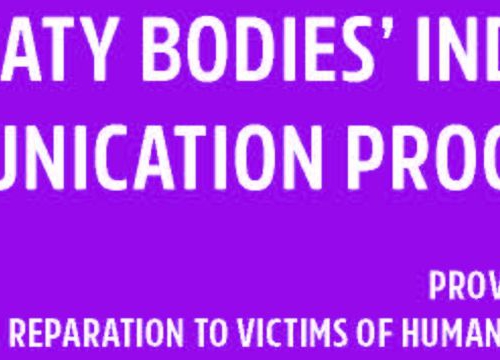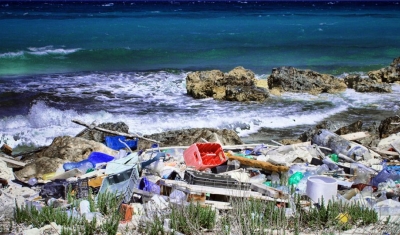New Publication Provides Guidance to Improve the UN Human Rights Individual Complaints Mechanism


Geneva Academy
27 May 2019
Treaty Bodies’ Individual Communication Procedures (ICPs) are a major instrument to enforce the rights enshrined in the corresponding human rights treaties and provide victims with an effective remedy before an international body. They also represent a key entry point for victims of human rights violations to the United Nations (UN) human rights system.
Our new publication Treaty Bodies’ Individual Communication Procedures: Providing Redress and Reparation to Victims of Human Rights Violations addresses the handling of individual communications, tackles efficiency questions related to this procedure and outlines a series of key recommendations to improve the system, including the creation of a registry to provide substantive legal support to UN treaty bodies.
An Under-Studied Issue
This report examines an essential aspect of the work of UN treaty bodies which, unlike state reporting, has received insufficient attention despite representing an import¬ant mechanism to enforce victims’ rights and ensure that national laws are in line with international standards.
‘Compared to the periodic reviews based on state reports, the issue of communications has received little attention in the debate, hence the need to fill this gap’ underlines Felix Kirchmeier, Coordinator of the Geneva Human Rights Platform and co-author of the report.
Focus on Victims
Victims’ access to redress forms the basis of the reflections in this publication.
‘We notably examined how the available procedures function, how useful they are to victims in terms of guaranteeing their rights and providing remedies, how they are implemented, what and how could be improved’ explains Kamelia Kemileva, former Special Projects Manager at the Geneva Academy and co-author of the publication.
Key Challenges
The publication identifies four challenges that currently prevent individual communication procedures from providing relief to victims of human rights violations – accessibility and visibility, stakeholder’s participation, universal use and structural difficulties – and provides specific recommendations to address these challenges.
‘For each challenge, we discuss the current shortcomings of the system, including for instance the issue of reprisals against those filing complaints; the need to modernize the Petitions and Urgent Action Section of the Office of the UN High Commissioner for Human Rights; or the issue of coordination and harmonization among the various treaty bodies and complaint procedures’ stresses Claire Callejon, Associate Research Fellow at the Geneva Academy and co-author of the publication.

Recommendations for Improvement: From Short-Term Critical Measures to Medium-Term Positive Change
The publication details concrete and feasible steps that can be taken to improve the ICPs, including short-term critical measures like enhancing the visibility through a more user-friendly web¬site and a readily accessible, up-to-date, comprehensive database; digitalizing the registration of new complaints based on strict criteria; giving autonomy to both parties in the complaint procedure through an online, secure portal where the author of the communication and the state party concerned can submit infor¬mation and be kept informed of the proceedings ; harmonizing working methods related to individual communications across treaty bodies; continuing to develop in all committees ‘fast-track’ techniques, and work in groups and internal chambers to speed up the process and deal with the backlog of cases.
‘While we are fully aware that UN treaty bodies are under huge budgetary constraints, most of these short-term recommendations would, if implemented, hugely contribute to the improvement of the system and would not require a huge amount of financial resources’ explains Felix Kirchmeier.
Launch in Geneva
The publication will be launched and distributed in Geneva at an event of the Geneva Human Rights Platform that will take place on 31 May (10:30–12:00) at the Geneva Academy.










